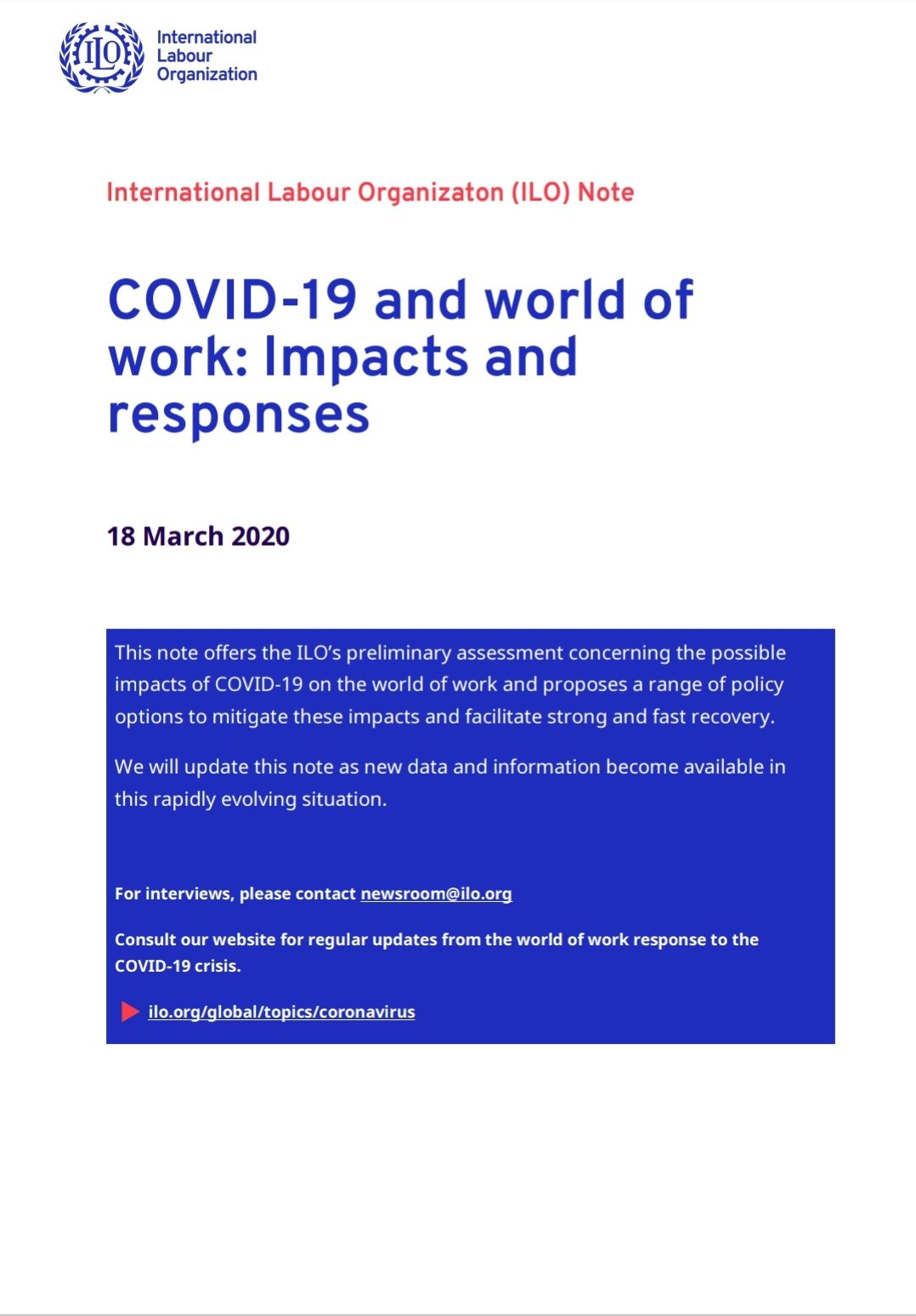The world has been focusing on the enormous challenges to health and societies brought by COVID-19. Hopefully, the pandemic will end soon. The ILO Report: Impacts and Responses, described and linked in this ILO news release, speaks of the current challenges and what needs to be done for workers and to sustain economic activity. Equally important, it urges us to look to the future.
The ILO makes a parallel with the policies following the financial crisis in 2009. In the words of ILO Director-General Guy Ryder, “This is no longer only a global health crisis, it is also a major labour market and economic crisis that is having a huge impact on people. In 2008, the world presented a united front to address the consequences of the global financial crisis, and the worst was averted. We need that kind of leadership and resolve now”.
 The massive initial response that averted a recession in the financial crisis is one lesson, however, that temporary response did not stave off a huge leap in inequality, austerity programs and, ultimately, the birth of anti-democratic forces. The world is profoundly more unequal than it was before the financial crisis.
The massive initial response that averted a recession in the financial crisis is one lesson, however, that temporary response did not stave off a huge leap in inequality, austerity programs and, ultimately, the birth of anti-democratic forces. The world is profoundly more unequal than it was before the financial crisis.
Although the current situation and 2009 share the need for massive, coordinated economic stimulation, this time around, there is an emerging consensus that it cannot just be in the form of temporary measures to limit the damage. Circumstances and the characteristics of the economy and financial markets are different than they were in 2009. Massive support for the economy and for workers is the right thing to do, politically, socially, and economically. As the Managing Director of the IMF, Kristalina Georgieva, wrote in a blog post earlier this week, “the case for a coordinated and synchronized global fiscal stimulus is becoming stronger by the hour.”
Ambet Yuson, General Secretary of BWI, said, “we, like our member organisations, are focused on the immediate health, employment, rights and social protections of our members. Our priority is health and maintaining decent lives and work for working people in our sectors during this crisis. However, the ILO is correct in asking us, this early, to think about the future. We will do whatever is necessary to safeguard public health and further social justice, but when the pandemic is hopefully over soon, we do not want workers and our communities to be punished, as was true a decade ago, for our struggle and our sacrifices. We must overcome this pandemic and look to the future with hope, not despair.”
